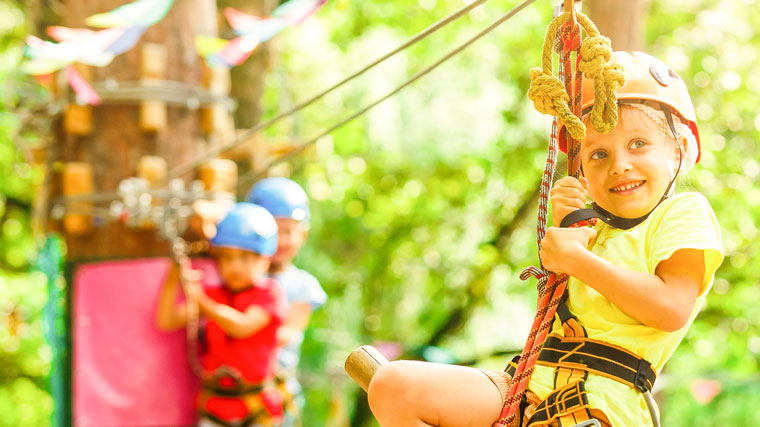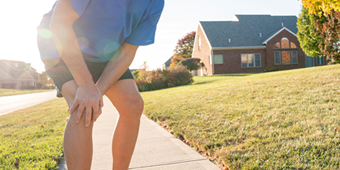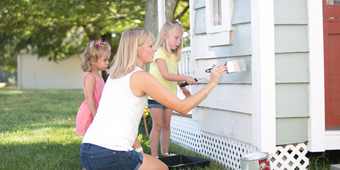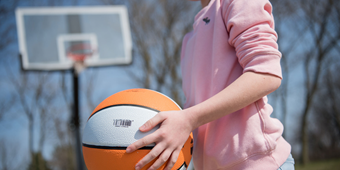Safety Is Key To Summer Fun

Answer a few questions and we'll provide you with a list of primary care providers that best fit your needs.
As the summer months heat up, outdoor activities are a great way to enjoy quality time with your family.
Whether at home or on vacation, it’s important for everyone to take steps to stay safe while having fun.
Family physician Matthew Stone, DO, describes some common hazards and what you should do avoid them.
Click play to watch the video or read video transcript.
Here’s additional advice from pediatricians and others on what you can do to keep your family safe.
Bicycles, Skateboards, Scooters, and other Wheeled Items
All children should wear a bicycle helmet for every bike, scooter, and skate ride.
Whether at home, on a short ride, or on a bike path, helmets can protect children from major injuries.
When it comes to bicycles, making sure your child is interested in and ready to ride a two-wheeled bicycle is important rather than pushing them when they aren’t ready yet.
Having a bicycle with foot brakes and being confident in your child’s coordination both can help minimize falls that can lead to bicycle injuries.
Occasional bumps and bruises are bound to happen, but avoiding more serious injuries, such as bone breaks and fractures, is the goal.
Have inexperienced riders ride on solid surfaces with little debris, rocks, bumps, and hills. Also, have them practice falling on grass or other soft surfaces so they are prepared for actual falls along the way.
Provide protective elbow, wrist, and knee pads also to help avoid serious injuries.
Swimming
Thousands of serious injuries occur each year from diving and jumping into shallow water. Such injuries are most common among children.
Injuries can be prevented by following these safety rules:
- Avoid diving in all above-ground pools.
- Do not dive in shallow water.
- Do not drink alcohol while participating in water activities because it affects balance, coordination, and judgment.
- Do not run on a pool deck or other slick surface.
- Follow instructions on posted signs.
- Know the water depth of where you are swimming and diving to avoid collision.
- Never dive or swim into murky water because it’s important to be able to see the bottom.
- Teach children correct water safety and explain the dangers of horseplay.
Trampolines
The American Association of Pediatricians recommends that families should not purchase home trampolines – both mini and full sized – or allow their children to use trampolines at the homes of others.
The injury risk is extremely great, even with adult supervision.
Most trampoline injuries occur when more than one person is jumping at a time. Among the most common trampoline injuries are broken bones, for which surgery can often be needed.
If your child does use a trampoline, it should be part of a supervised training program for gymnastics, diving, or other competitive sports.
Though some home trampolines can be purchased with safety netting, that the netting provides a false sense of security because it cannot prevent injuries from falls and bad landings.
Overall, taking some small safety steps when playing outdoors can help avoid injuries that could make the rest of the summer less enjoyable.
Answer a few questions and we'll provide you with a list of primary care providers that best fit your needs.
Source: Matthew Stone, DO, Middletown Family Practice






